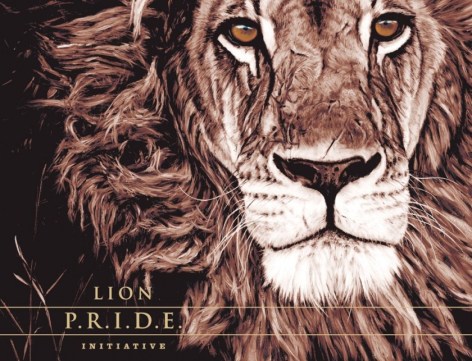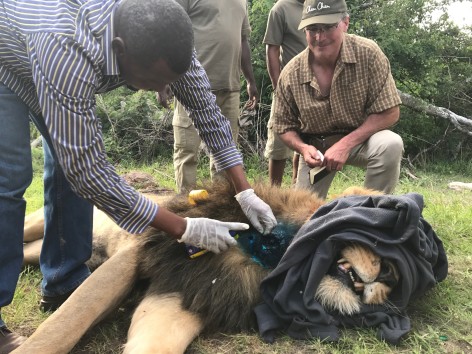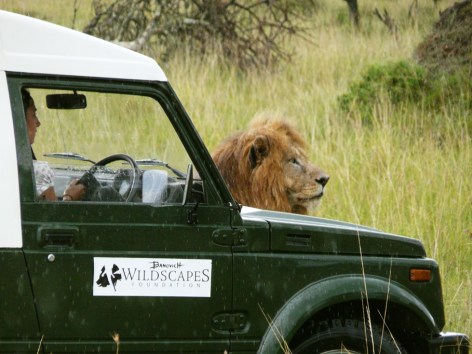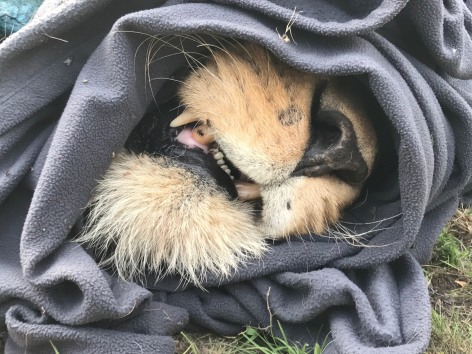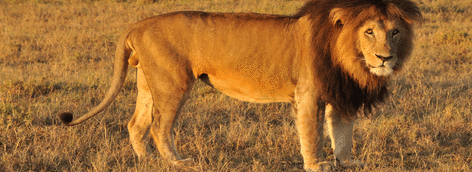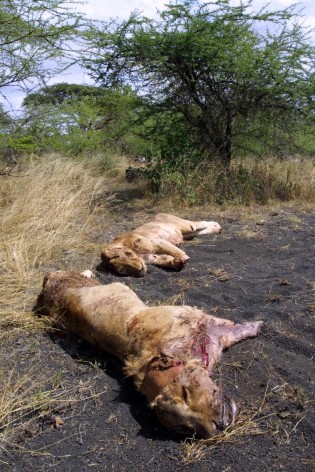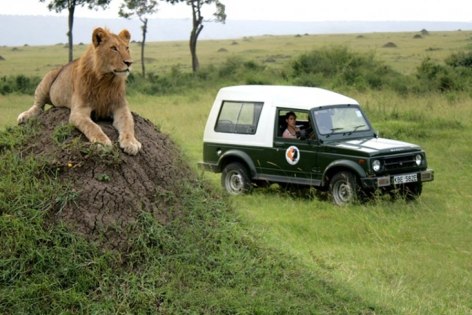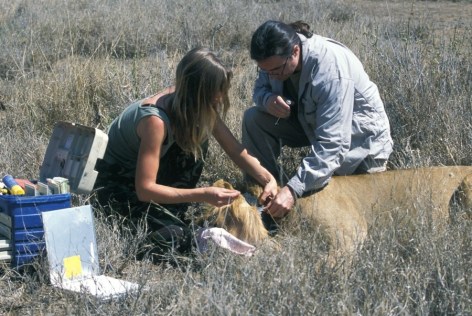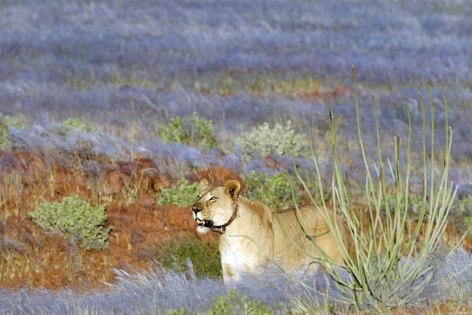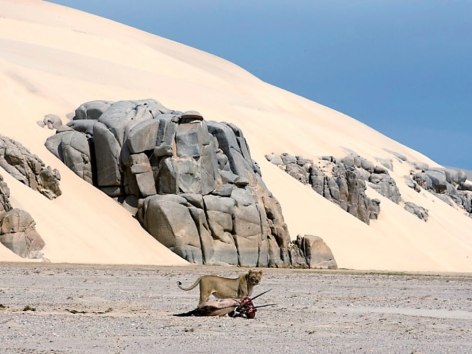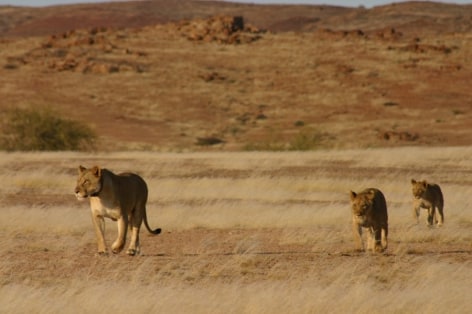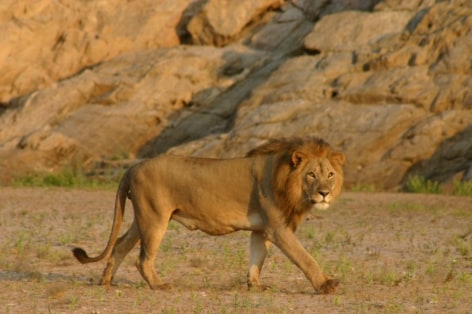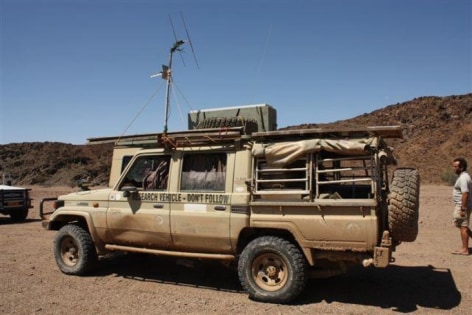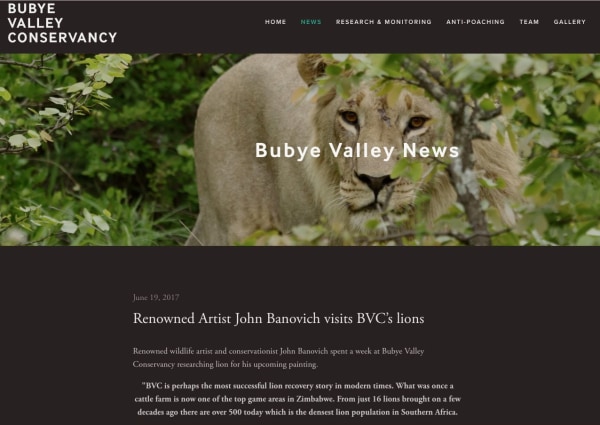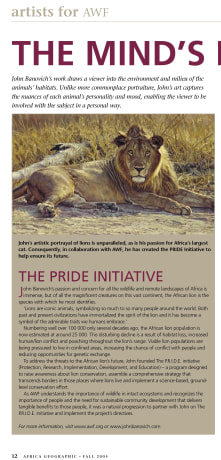Laikipia Predator Project, Mara Lion Project, and the Chem Chem Lion Project
P.R.I.D.E. Protection, Research, Implementation, Development, Education
The BWF Lion PRIDE Initiative is dedicated to conserving lions through supporting important scientific research to preserve large conservation landscapes and benefitting rural community development. Africa’s predator populations are declining, becoming isolated, and even locally extinct, and recently the lion has experienced serious population declines. These declines are occurring before we fully understand predator communities and how they function. Predators are central to conservation; in ecological terms, large predators are keystone species which affect the entire ecosystem. Once distributed across most of North and South America, Europe, Africa, and Asia, lions are now found only in sub-Saharan Africa, with a tiny population in India. Probably numbering less than 25,000, they are largely confined to scattered parks and reserves, too isolated to protect populations long term from disease, genetic inbreeding and political instability. PRIDE stands for:
Protection of large areas of suitable habitat is fundamental to the long-term survival of African lions, but few protected areas are large enough for wide-ranging big game. African governments desperately need help in providing better protection for wildlife outside of parks. Wide scale killing in defense of livestock is by far the most critical threat to lions.
Research is vital to develop better methods of preventing predators from becoming livestock raiders, thereby reducing the need to kill problem lions. We know little about conservation biology of African predators. We must understand the complex dynamics between wildlife needs and ever-growing human needs.
Implementation of income created by hunting and tourism can help solve problems, but we must implement equitable distribution of hunting profits among communities living with wildlife. Rural communities that could benefit from sport hunting need trained and well-equipped game scouts to control poaching. We need to give sport hunters opportunities to help ensure that wildlife is sustainably managed.
Development of rural communities must be directly linked to protection of wildlife. A significant portion of hunting and tourism income contribute compensation to individuals, support effective game scouts and benefit rural communities by building and staffing schools, clinics and other essential infrastructure.
Education of rural communities allows locals to learn that wildlife can be an economic asset rather than a liability. To avoid counterproductive killing of game, people must be taught ways of minimizing wildlife damage to crops and livestock. Game management officials must improve principles of sustainable wildlife management.
“Man has long been enchanted with the majestic lion. Throughout history, the king of beasts has been celebrated in our ancient drawings, paintings, stone reliefs, crests and modern corporate logos. The lion has taken on important symbolism to represent strength, bravery, loyalty and courage. Over a decade ago we learned that the lion populations in Africa were in a steep decline. As was once said, “There is responsibility in knowing.” I was inspired to start the Lion Pride Initiative and partnered with Dr. Laurence Frank to launch the Mara Predator Project in Mara North Conservancy. Today we are honored to partner with the Kenya Wildlife Trust’s new Lion Project and Predator Research Hub as ambassadors for the finest carnivore project in east Africa. The Masai Mara Greater Ecosystem provides a vestibule of secured habitat, human presence and livestock, and presents the perfect laboratory to help us understand lion movements and influencing trends on their numbers. This will have a resounding impact not only in this ecosystem, but throughout east and southern Africa.” John Banovich

